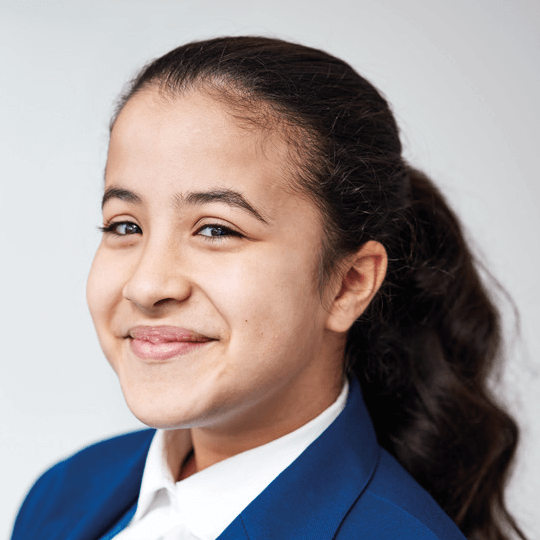The School that’s Improving Teacher Wellbeing to Retain Great Staff

Improving teacher wellbeing and building a strong community spirit among colleagues are driving forces at this Essex primary…

- by Elaine Bennett
- Digital content manager for Teachwire and former Teach Primary magazine editor

If you had to sit down and write a list of all the experiences you hoped your pupils would get to try during their time at primary school, what would it include?
Jumping over a wave? Eating a meal in a restaurant? Writing to the prime minister? All of these activities, plus lots more, feature on Longwood Primary Academy’s ‘70 things at Longwood’ list.
“We realised that some of our children had very limited life experiences,” explains headteacher James Hollinsley.
“We started off with a list of 50 things, but it’s now crept up to 70” – that’s approximately ten experiences a year mapped out between Reception and Y6.
“There’s a rationale behind every item on the list,” explains deputy headteacher Hannah Ewers.
“We don’t just pluck them out of thin air. Some of our children lack confidence and trust in other people because of their life experiences. A lot of the things on the list are about building resilience.”
One of the new challenges for Y6 pupils this year, for example, is to independently navigate the London Underground. “They’ll go around in groups of five,” explains James.
Year 6 teacher and phase leader
 I lead history and geography across our five academies. I worked with a range of colleagues across the trust to develop a new history curriculum, which we rolled out at the end of last year. This has a high focus on equipping children with the knowledge and skills they need to become lifelong learners.
I lead history and geography across our five academies. I worked with a range of colleagues across the trust to develop a new history curriculum, which we rolled out at the end of last year. This has a high focus on equipping children with the knowledge and skills they need to become lifelong learners.
4 ideas to magpie from Longwood Primary Academy
- Speakers are set up throughout Longwood’s corridors to play music which pupils are encouraged to listen to when moving around the school. “It’s more enjoyable and better for the soul than silent corridors,” explains headteacher James Hollinsley, “and Funky Fridays are a sight to see!”
- Children at the school worked together to agree on standardised sanctions for misbehaviour. “They’re very clear now that if this happens, then that is the consequence,” says James. “It’s fair and gives pupils a sense of ownership.”
- Pupils can post worries about e-safety in a box. The school’s computing teacher monitors these and meets with children to discuss their concerns and offer practical support.
- Since 2016, pupils have taken part in the Daily Mile. This involves going outside for 15 minutes a day, at a time decided by each class teacher. “Teachers use it as a bit of an intervention in order to help pupils reset and clear their heads,” explains James.
If you would like to visit any of the NET academies to learn about their practice, please email staaffe@trust.netacademies.net.
Louise Payne
Year 5 teacher and phase leader
 I’m social secretary for the school and love that part of my job. I get to organise all the nights out and really try to make sure there’s a range of experiences to meet everyone’s needs. Some staff prefer things that are closer to home, whereas others like to go into London, so we really try to mix it up.
I’m social secretary for the school and love that part of my job. I get to organise all the nights out and really try to make sure there’s a range of experiences to meet everyone’s needs. Some staff prefer things that are closer to home, whereas others like to go into London, so we really try to mix it up.
Jane Hart
Learning support assistant
 When my son graduated in Derby I needed a full day to attend. Even though I’d already had my star day the school accommodated me very well. I shuffled my interventions round so no children missed their session. Everyone in the team has gelled and the social events have really helped with that.
When my son graduated in Derby I needed a full day to attend. Even though I’d already had my star day the school accommodated me very well. I shuffled my interventions round so no children missed their session. Everyone in the team has gelled and the social events have really helped with that.
Hannah Ewers
Deputy headteacher
 The English and maths specialists at the trust support teachers in their planning and also heavily support student teachers. They deliver model lessons, do book scrutinies and run booster sessions. Their time is split across all the schools in the trust, which ensures consistency across our academies.
The English and maths specialists at the trust support teachers in their planning and also heavily support student teachers. They deliver model lessons, do book scrutinies and run booster sessions. Their time is split across all the schools in the trust, which ensures consistency across our academies.
Laura Rose
Year 6 teacher and phase leader
 I lead history and geography across our five academies. I worked with a range of colleagues across the trust to develop a new history curriculum, which we rolled out at the end of last year. This has a high focus on equipping children with the knowledge and skills they need to become lifelong learners.
I lead history and geography across our five academies. I worked with a range of colleagues across the trust to develop a new history curriculum, which we rolled out at the end of last year. This has a high focus on equipping children with the knowledge and skills they need to become lifelong learners.
4 ideas to magpie from Longwood Primary Academy
- Speakers are set up throughout Longwood’s corridors to play music which pupils are encouraged to listen to when moving around the school. “It’s more enjoyable and better for the soul than silent corridors,” explains headteacher James Hollinsley, “and Funky Fridays are a sight to see!”
- Children at the school worked together to agree on standardised sanctions for misbehaviour. “They’re very clear now that if this happens, then that is the consequence,” says James. “It’s fair and gives pupils a sense of ownership.”
- Pupils can post worries about e-safety in a box. The school’s computing teacher monitors these and meets with children to discuss their concerns and offer practical support.
- Since 2016, pupils have taken part in the Daily Mile. This involves going outside for 15 minutes a day, at a time decided by each class teacher. “Teachers use it as a bit of an intervention in order to help pupils reset and clear their heads,” explains James.
If you would like to visit any of the NET academies to learn about their practice, please email staaffe@trust.netacademies.net.
 We have lessons during breakfast club. It gets our brains working. On Mondays we do art, Tuesdays is dodgeball, Wednesdays is calculations, Thursdays is football and Friday is computing.
We have lessons during breakfast club. It gets our brains working. On Mondays we do art, Tuesdays is dodgeball, Wednesdays is calculations, Thursdays is football and Friday is computing.
Meet the staff
Louise Payne
Year 5 teacher and phase leader
 I’m social secretary for the school and love that part of my job. I get to organise all the nights out and really try to make sure there’s a range of experiences to meet everyone’s needs. Some staff prefer things that are closer to home, whereas others like to go into London, so we really try to mix it up.
I’m social secretary for the school and love that part of my job. I get to organise all the nights out and really try to make sure there’s a range of experiences to meet everyone’s needs. Some staff prefer things that are closer to home, whereas others like to go into London, so we really try to mix it up.
Jane Hart
Learning support assistant
 When my son graduated in Derby I needed a full day to attend. Even though I’d already had my star day the school accommodated me very well. I shuffled my interventions round so no children missed their session. Everyone in the team has gelled and the social events have really helped with that.
When my son graduated in Derby I needed a full day to attend. Even though I’d already had my star day the school accommodated me very well. I shuffled my interventions round so no children missed their session. Everyone in the team has gelled and the social events have really helped with that.
Hannah Ewers
Deputy headteacher
 The English and maths specialists at the trust support teachers in their planning and also heavily support student teachers. They deliver model lessons, do book scrutinies and run booster sessions. Their time is split across all the schools in the trust, which ensures consistency across our academies.
The English and maths specialists at the trust support teachers in their planning and also heavily support student teachers. They deliver model lessons, do book scrutinies and run booster sessions. Their time is split across all the schools in the trust, which ensures consistency across our academies.
Laura Rose
Year 6 teacher and phase leader
 I lead history and geography across our five academies. I worked with a range of colleagues across the trust to develop a new history curriculum, which we rolled out at the end of last year. This has a high focus on equipping children with the knowledge and skills they need to become lifelong learners.
I lead history and geography across our five academies. I worked with a range of colleagues across the trust to develop a new history curriculum, which we rolled out at the end of last year. This has a high focus on equipping children with the knowledge and skills they need to become lifelong learners.
4 ideas to magpie from Longwood Primary Academy
- Speakers are set up throughout Longwood’s corridors to play music which pupils are encouraged to listen to when moving around the school. “It’s more enjoyable and better for the soul than silent corridors,” explains headteacher James Hollinsley, “and Funky Fridays are a sight to see!”
- Children at the school worked together to agree on standardised sanctions for misbehaviour. “They’re very clear now that if this happens, then that is the consequence,” says James. “It’s fair and gives pupils a sense of ownership.”
- Pupils can post worries about e-safety in a box. The school’s computing teacher monitors these and meets with children to discuss their concerns and offer practical support.
- Since 2016, pupils have taken part in the Daily Mile. This involves going outside for 15 minutes a day, at a time decided by each class teacher. “Teachers use it as a bit of an intervention in order to help pupils reset and clear their heads,” explains James.
If you would like to visit any of the NET academies to learn about their practice, please email staaffe@trust.netacademies.net.
Desiree
 I find maths hard but the teachers are really helpful. I’ve been here since nursery and this is my last year here. I don’t want to leave, but life is life. I go home to my mum with a big smile on my face. School makes me happy.
I find maths hard but the teachers are really helpful. I’ve been here since nursery and this is my last year here. I don’t want to leave, but life is life. I go home to my mum with a big smile on my face. School makes me happy.
Djedija
 In my role as a ‘bigger buddy’ I support a younger student. My job is to make sure his behaviour and attitude are on point. I keep telling him that he has to be at 100%. He listens to me and is doing well.
In my role as a ‘bigger buddy’ I support a younger student. My job is to make sure his behaviour and attitude are on point. I keep telling him that he has to be at 100%. He listens to me and is doing well.
Elissa
 Last year I filled out a pupil advocate application, where I had to list all my achievements. Miss Ewers read all the applications and then there was an interview. As a pupil advocate I’m a role model to the younger kids.
Last year I filled out a pupil advocate application, where I had to list all my achievements. Miss Ewers read all the applications and then there was an interview. As a pupil advocate I’m a role model to the younger kids.
Zahara
 We have lessons during breakfast club. It gets our brains working. On Mondays we do art, Tuesdays is dodgeball, Wednesdays is calculations, Thursdays is football and Friday is computing.
We have lessons during breakfast club. It gets our brains working. On Mondays we do art, Tuesdays is dodgeball, Wednesdays is calculations, Thursdays is football and Friday is computing.
Meet the staff
Louise Payne
Year 5 teacher and phase leader
 I’m social secretary for the school and love that part of my job. I get to organise all the nights out and really try to make sure there’s a range of experiences to meet everyone’s needs. Some staff prefer things that are closer to home, whereas others like to go into London, so we really try to mix it up.
I’m social secretary for the school and love that part of my job. I get to organise all the nights out and really try to make sure there’s a range of experiences to meet everyone’s needs. Some staff prefer things that are closer to home, whereas others like to go into London, so we really try to mix it up.
Jane Hart
Learning support assistant
 When my son graduated in Derby I needed a full day to attend. Even though I’d already had my star day the school accommodated me very well. I shuffled my interventions round so no children missed their session. Everyone in the team has gelled and the social events have really helped with that.
When my son graduated in Derby I needed a full day to attend. Even though I’d already had my star day the school accommodated me very well. I shuffled my interventions round so no children missed their session. Everyone in the team has gelled and the social events have really helped with that.
Hannah Ewers
Deputy headteacher
 The English and maths specialists at the trust support teachers in their planning and also heavily support student teachers. They deliver model lessons, do book scrutinies and run booster sessions. Their time is split across all the schools in the trust, which ensures consistency across our academies.
The English and maths specialists at the trust support teachers in their planning and also heavily support student teachers. They deliver model lessons, do book scrutinies and run booster sessions. Their time is split across all the schools in the trust, which ensures consistency across our academies.
Laura Rose
Year 6 teacher and phase leader
 I lead history and geography across our five academies. I worked with a range of colleagues across the trust to develop a new history curriculum, which we rolled out at the end of last year. This has a high focus on equipping children with the knowledge and skills they need to become lifelong learners.
I lead history and geography across our five academies. I worked with a range of colleagues across the trust to develop a new history curriculum, which we rolled out at the end of last year. This has a high focus on equipping children with the knowledge and skills they need to become lifelong learners.
4 ideas to magpie from Longwood Primary Academy
- Speakers are set up throughout Longwood’s corridors to play music which pupils are encouraged to listen to when moving around the school. “It’s more enjoyable and better for the soul than silent corridors,” explains headteacher James Hollinsley, “and Funky Fridays are a sight to see!”
- Children at the school worked together to agree on standardised sanctions for misbehaviour. “They’re very clear now that if this happens, then that is the consequence,” says James. “It’s fair and gives pupils a sense of ownership.”
- Pupils can post worries about e-safety in a box. The school’s computing teacher monitors these and meets with children to discuss their concerns and offer practical support.
- Since 2016, pupils have taken part in the Daily Mile. This involves going outside for 15 minutes a day, at a time decided by each class teacher. “Teachers use it as a bit of an intervention in order to help pupils reset and clear their heads,” explains James.
If you would like to visit any of the NET academies to learn about their practice, please email staaffe@trust.netacademies.net.
James concludes, “We’ve worked very hard at developing our blueprint for staff development and wellbeing. I think that our template would go a long way in any school that is interested in the wellbeing of its teachers. I want my staff to retire with us and be able to say, ‘I’ve had a great life, and part of that is because I’ve been here at Longwood’.”
Pupil voice
Desiree
 I find maths hard but the teachers are really helpful. I’ve been here since nursery and this is my last year here. I don’t want to leave, but life is life. I go home to my mum with a big smile on my face. School makes me happy.
I find maths hard but the teachers are really helpful. I’ve been here since nursery and this is my last year here. I don’t want to leave, but life is life. I go home to my mum with a big smile on my face. School makes me happy.
Djedija
 In my role as a ‘bigger buddy’ I support a younger student. My job is to make sure his behaviour and attitude are on point. I keep telling him that he has to be at 100%. He listens to me and is doing well.
In my role as a ‘bigger buddy’ I support a younger student. My job is to make sure his behaviour and attitude are on point. I keep telling him that he has to be at 100%. He listens to me and is doing well.
Elissa
 Last year I filled out a pupil advocate application, where I had to list all my achievements. Miss Ewers read all the applications and then there was an interview. As a pupil advocate I’m a role model to the younger kids.
Last year I filled out a pupil advocate application, where I had to list all my achievements. Miss Ewers read all the applications and then there was an interview. As a pupil advocate I’m a role model to the younger kids.
Zahara
 We have lessons during breakfast club. It gets our brains working. On Mondays we do art, Tuesdays is dodgeball, Wednesdays is calculations, Thursdays is football and Friday is computing.
We have lessons during breakfast club. It gets our brains working. On Mondays we do art, Tuesdays is dodgeball, Wednesdays is calculations, Thursdays is football and Friday is computing.
Meet the staff
Louise Payne
Year 5 teacher and phase leader
 I’m social secretary for the school and love that part of my job. I get to organise all the nights out and really try to make sure there’s a range of experiences to meet everyone’s needs. Some staff prefer things that are closer to home, whereas others like to go into London, so we really try to mix it up.
I’m social secretary for the school and love that part of my job. I get to organise all the nights out and really try to make sure there’s a range of experiences to meet everyone’s needs. Some staff prefer things that are closer to home, whereas others like to go into London, so we really try to mix it up.
Jane Hart
Learning support assistant
 When my son graduated in Derby I needed a full day to attend. Even though I’d already had my star day the school accommodated me very well. I shuffled my interventions round so no children missed their session. Everyone in the team has gelled and the social events have really helped with that.
When my son graduated in Derby I needed a full day to attend. Even though I’d already had my star day the school accommodated me very well. I shuffled my interventions round so no children missed their session. Everyone in the team has gelled and the social events have really helped with that.
Hannah Ewers
Deputy headteacher
 The English and maths specialists at the trust support teachers in their planning and also heavily support student teachers. They deliver model lessons, do book scrutinies and run booster sessions. Their time is split across all the schools in the trust, which ensures consistency across our academies.
The English and maths specialists at the trust support teachers in their planning and also heavily support student teachers. They deliver model lessons, do book scrutinies and run booster sessions. Their time is split across all the schools in the trust, which ensures consistency across our academies.
Laura Rose
Year 6 teacher and phase leader
 I lead history and geography across our five academies. I worked with a range of colleagues across the trust to develop a new history curriculum, which we rolled out at the end of last year. This has a high focus on equipping children with the knowledge and skills they need to become lifelong learners.
I lead history and geography across our five academies. I worked with a range of colleagues across the trust to develop a new history curriculum, which we rolled out at the end of last year. This has a high focus on equipping children with the knowledge and skills they need to become lifelong learners.
4 ideas to magpie from Longwood Primary Academy
- Speakers are set up throughout Longwood’s corridors to play music which pupils are encouraged to listen to when moving around the school. “It’s more enjoyable and better for the soul than silent corridors,” explains headteacher James Hollinsley, “and Funky Fridays are a sight to see!”
- Children at the school worked together to agree on standardised sanctions for misbehaviour. “They’re very clear now that if this happens, then that is the consequence,” says James. “It’s fair and gives pupils a sense of ownership.”
- Pupils can post worries about e-safety in a box. The school’s computing teacher monitors these and meets with children to discuss their concerns and offer practical support.
- Since 2016, pupils have taken part in the Daily Mile. This involves going outside for 15 minutes a day, at a time decided by each class teacher. “Teachers use it as a bit of an intervention in order to help pupils reset and clear their heads,” explains James.
If you would like to visit any of the NET academies to learn about their practice, please email staaffe@trust.netacademies.net.
“There will be an adult with them but they won’t be allowed to intervene unless there’s an emergency. All the groups have to reach a certain place at the end of the day – it will really push their limits.”
 Name: Longwood Primary Academy
Headteacher: James Hollinsley
Location: Harlow, Essex
Ofsted rating: Good
Size: 320 pupils
Extra info: the school belongs to NET Academies Trust
Name: Longwood Primary Academy
Headteacher: James Hollinsley
Location: Harlow, Essex
Ofsted rating: Good
Size: 320 pupils
Extra info: the school belongs to NET Academies Trust
1 | Developing life skills
Longwood is based in Harlow, Essex and its intake is made up of just under 40% pupil premium students. Staff recognise that it is not necessarily only these pupils who may be struggling, however.
“There’s a further 25% who we would deem as ‘vulnerable’,” says James. The school has created individual ‘barrier plans’ for these children, to ensure no one slips through the net.
“For example, we have large families living in small properties,” continues James.
“The parents work so they’re not pupil premium children, but they’re living in fairly difficult conditions, so we’ve turned our provision on its head. We write down the barriers to each individual’s learning. Most of the time, it’s not academic things. It could be anything from needing a new pair of glasses to not having access to a positive male role model.”
Hannah adds, “A barrier could be something as simple as not having the right resources at home to complete homework, for example, so we may give a pupil a fully stocked pencil case. Small things like that can make such a difference.”
Alongside its ‘70 things’ initiative, the school also runs a life skills programme. “We noticed that some of our Y6 children who were working at greater depth couldn’t tie their own shoelaces,” explains James.
“We want to get our pupils life ready, so it’s important to look at gaps in their abilities.” Each year group has a list of nine or ten life skills to conquer, from learning how to use a knife and fork to tying a tie.
“Sometimes the teacher models the skill,” says Hannah. “Other times, the children partner up with another pupil who can already do it.” Families are also encouraged to support the process at home.
“We do have some children where lack of opportunities at home means they haven’t developed these basic skills, but lots of our parents are very on board”, explains Hannah.
2 | Star days
In 2017, Longwood extended its school day. “Previously, time in the afternoon was limited,” James explains. “We also noticed that children, and staff, began to tire towards the end of longer eight-week terms.”
The school increased its normal day by half an hour. If children don’t attend breakfast or after-school club, they are now in school between 8.45am and 3.45pm.
“It gives us the time for an extra full lesson in the afternoon to cover the curriculum in greater depth,” says James. This extra time is offset by an extra week off during October and May half terms, and three extra days off over Christmas.
The school runs free holiday clubs for the children of working parents during the second week of these longer half term breaks to offset the extra childcare costs – staffed voluntarily by TAs and teachers from across the trust, who are paid for their time.
For James, the benefits of tweaking the timetable have been numerous. “The quality of learning is better because the children are able to sustain their concentration,” he says.
“We’ve found it’s been beneficial for everyone and staff feedback especially has been very positive.”
Staff wellbeing is a key priority of the senior leadership team at Longwood. As a reward for excellent attendance or exceptional performance, colleagues are awarded one ‘star day’ per year – a free day off to use whenever they like.
“We’re also very flexible around staff wanting to go and see their child’s Christmas production or graduation,” says James.
“It’s about give and take,” adds Hannah. “We have an understanding that people have a life outside of work and we want to support that. Being allowed to go and do these things has a positive impact on teachers and that feeds back into school. We want happy staff.”
To this end, the school also places a strong emphasis on building community spirit among colleagues. “We looked at research that shows that if you can form genuine friendships with the people you work with, that boosts your wellbeing,” says Hannah.
“Not everyone will be friends with everyone else, of course, but we like to give people the opportunity to engage in activities outside of school.”
James adds, “We’ve got some teachers from overseas who don’t necessarily have a social circle yet. That can be quite isolating and depressing I think, so we try and organise at least two events per half term.
“Some staff members want to come in at 8.15am, leave by 4.30pm and aren’t interested in social activities, and that’s fine. They’re just as important and valued – there’s no pressure. But there’s also staff who want to come in early for a coffee and a chat and stay behind for every staff social.
“We try to offer something for everyone – that’s far better than offering nothing.”
James has also been working to standardise the school’s response to big events in the life of staff. “We’ve been thinking about what we do when someone gets engaged or celebrates a birthday, for example. How, as a staff collective, do we respond to that?” he explains.
“It’s about acknowledging life’s celebrations and saying that as a great employer, this is what we should do.”
3 | Four for four
As in many schools across the country, staff workload has also been a key focus at Longwood over the last couple of years. “We’re constantly trying to reduce it while still having a positive effect on the children,” says James. “I don’t think it’s ever not going to be on our agenda.”
Teachers are now expected to write just one next step a week in books in maths, English and topic work, with increased verbal feedback filling in the gaps.
“In maths, most teachers were writing a positive comment every day that really just reflected the learning objectives – something like ‘Great division, Joseph’,” explains Hannah.
“We looked at the impact of those comments. Do they enable children to reflect on their own learning? Most of the time, no. Now the expectation is that we mark maths books with a tick or a dot, then one day a week we write a more reflective comment.”
The school has also encouraged teachers to get children to mark their own work where possible. “That’s a great tool for pupils” says Hannah. “They get to reflect on why they have or haven’t got it right.”
Senior leaders give fortnightly feedback to teachers on books. “We regularly spend ten to 15 minutes in each class,” explains James. “Then afterwards we share with the teacher everything we liked and give them one focus area. It’s very low stakes and we’ve seen the quality of teaching improve dramatically.”
A similar, new approach is taken to peer observation among teachers. “We call it ‘four for four’,” explains Hannah.
“Once a term we release every teaching staff member for an hour. In that time, they go and watch four members of staff for 15 minutes each. They’ve found it really useful and it gives people a better understanding of the range of teaching styles we’ve got in this school.”
After completing their 15-minute observations, teachers can request to go back and watch a particular colleague for a longer period of time.
James says, “This approach really works for us. Low stakes models for staff development help you open up a discussion in a non-threatening way. You can only develop people by doing that.”
4 | Teacher training
Staffing has come a long way from when James and Hannah arrived at Longwood in 2015. Back then, only 20% of teaching staff were on contract; the rest were supply. In fact, the school’s longest serving member of teaching staff was an NQT
Recruitment hasn’t always been easy, so James and Hannah have worked to set up their own trainee package to help. Staff who are interested in becoming teachers work as teaching assistants at the school for a year. During this pre-teaching year, they are given a 38-unit programme they can work through.
“It covers everything you need in order to be a good teacher, from safeguarding and creating a good classroom environment to planning and table settings,” explains Hannah.
“When they finish the programme and come to do their teacher training year, they’re very, very strong. That’s been commented on by their external tutors, as well.”
Hannah has noticed a big difference between staff members who have completed the programme versus those who haven’t. “The difference in their competence is quite significant,” she says.
The pre-teaching programme also means people who are potentially interested in becoming teachers have a greater understanding of what the role actually entails. “We don’t want to trick anyone into this job,” explains Hannah.
“One member of staff did the pre-teaching year and realised that, actually, teaching wasn’t for her. She was happier being a member of support staff, and that’s OK. We try and prepare people as much as possible and are very honest and open with them.”
James and Hannah work in collaboration with the other schools in their trust to spread their wellbeing vision and successes as far and wide as possible.
As well as publishing a book last year about mental health and wellbeing in schools, James is doing a talk at this year’s Education Show at ExCel in London to share Longwood’s story.
The school has also created an outreach team to work with colleagues in other settings. “We’ve now supported over 50 delegates from a range of schools,” says Hannah.
“We talk about our mental health provision and what we’ve found successful. We’ve developed a document that outlines our approach in detail that schools can dip into.” The school is also running a course for mental health and wellbeing leaders.
James concludes, “We’ve worked very hard at developing our blueprint for staff development and wellbeing. I think that our template would go a long way in any school that is interested in the wellbeing of its teachers. I want my staff to retire with us and be able to say, ‘I’ve had a great life, and part of that is because I’ve been here at Longwood’.”
Pupil voice
Desiree
 I find maths hard but the teachers are really helpful. I’ve been here since nursery and this is my last year here. I don’t want to leave, but life is life. I go home to my mum with a big smile on my face. School makes me happy.
I find maths hard but the teachers are really helpful. I’ve been here since nursery and this is my last year here. I don’t want to leave, but life is life. I go home to my mum with a big smile on my face. School makes me happy.
Djedija
 In my role as a ‘bigger buddy’ I support a younger student. My job is to make sure his behaviour and attitude are on point. I keep telling him that he has to be at 100%. He listens to me and is doing well.
In my role as a ‘bigger buddy’ I support a younger student. My job is to make sure his behaviour and attitude are on point. I keep telling him that he has to be at 100%. He listens to me and is doing well.
Elissa
 Last year I filled out a pupil advocate application, where I had to list all my achievements. Miss Ewers read all the applications and then there was an interview. As a pupil advocate I’m a role model to the younger kids.
Last year I filled out a pupil advocate application, where I had to list all my achievements. Miss Ewers read all the applications and then there was an interview. As a pupil advocate I’m a role model to the younger kids.
Zahara
 We have lessons during breakfast club. It gets our brains working. On Mondays we do art, Tuesdays is dodgeball, Wednesdays is calculations, Thursdays is football and Friday is computing.
We have lessons during breakfast club. It gets our brains working. On Mondays we do art, Tuesdays is dodgeball, Wednesdays is calculations, Thursdays is football and Friday is computing.
Meet the staff
Louise Payne
Year 5 teacher and phase leader
 I’m social secretary for the school and love that part of my job. I get to organise all the nights out and really try to make sure there’s a range of experiences to meet everyone’s needs. Some staff prefer things that are closer to home, whereas others like to go into London, so we really try to mix it up.
I’m social secretary for the school and love that part of my job. I get to organise all the nights out and really try to make sure there’s a range of experiences to meet everyone’s needs. Some staff prefer things that are closer to home, whereas others like to go into London, so we really try to mix it up.
Jane Hart
Learning support assistant
 When my son graduated in Derby I needed a full day to attend. Even though I’d already had my star day the school accommodated me very well. I shuffled my interventions round so no children missed their session. Everyone in the team has gelled and the social events have really helped with that.
When my son graduated in Derby I needed a full day to attend. Even though I’d already had my star day the school accommodated me very well. I shuffled my interventions round so no children missed their session. Everyone in the team has gelled and the social events have really helped with that.
Hannah Ewers
Deputy headteacher
 The English and maths specialists at the trust support teachers in their planning and also heavily support student teachers. They deliver model lessons, do book scrutinies and run booster sessions. Their time is split across all the schools in the trust, which ensures consistency across our academies.
The English and maths specialists at the trust support teachers in their planning and also heavily support student teachers. They deliver model lessons, do book scrutinies and run booster sessions. Their time is split across all the schools in the trust, which ensures consistency across our academies.
Laura Rose
Year 6 teacher and phase leader
 I lead history and geography across our five academies. I worked with a range of colleagues across the trust to develop a new history curriculum, which we rolled out at the end of last year. This has a high focus on equipping children with the knowledge and skills they need to become lifelong learners.
I lead history and geography across our five academies. I worked with a range of colleagues across the trust to develop a new history curriculum, which we rolled out at the end of last year. This has a high focus on equipping children with the knowledge and skills they need to become lifelong learners.
4 ideas to magpie from Longwood Primary Academy
- Speakers are set up throughout Longwood’s corridors to play music which pupils are encouraged to listen to when moving around the school. “It’s more enjoyable and better for the soul than silent corridors,” explains headteacher James Hollinsley, “and Funky Fridays are a sight to see!”
- Children at the school worked together to agree on standardised sanctions for misbehaviour. “They’re very clear now that if this happens, then that is the consequence,” says James. “It’s fair and gives pupils a sense of ownership.”
- Pupils can post worries about e-safety in a box. The school’s computing teacher monitors these and meets with children to discuss their concerns and offer practical support.
- Since 2016, pupils have taken part in the Daily Mile. This involves going outside for 15 minutes a day, at a time decided by each class teacher. “Teachers use it as a bit of an intervention in order to help pupils reset and clear their heads,” explains James.
If you would like to visit any of the NET academies to learn about their practice, please email staaffe@trust.netacademies.net.










